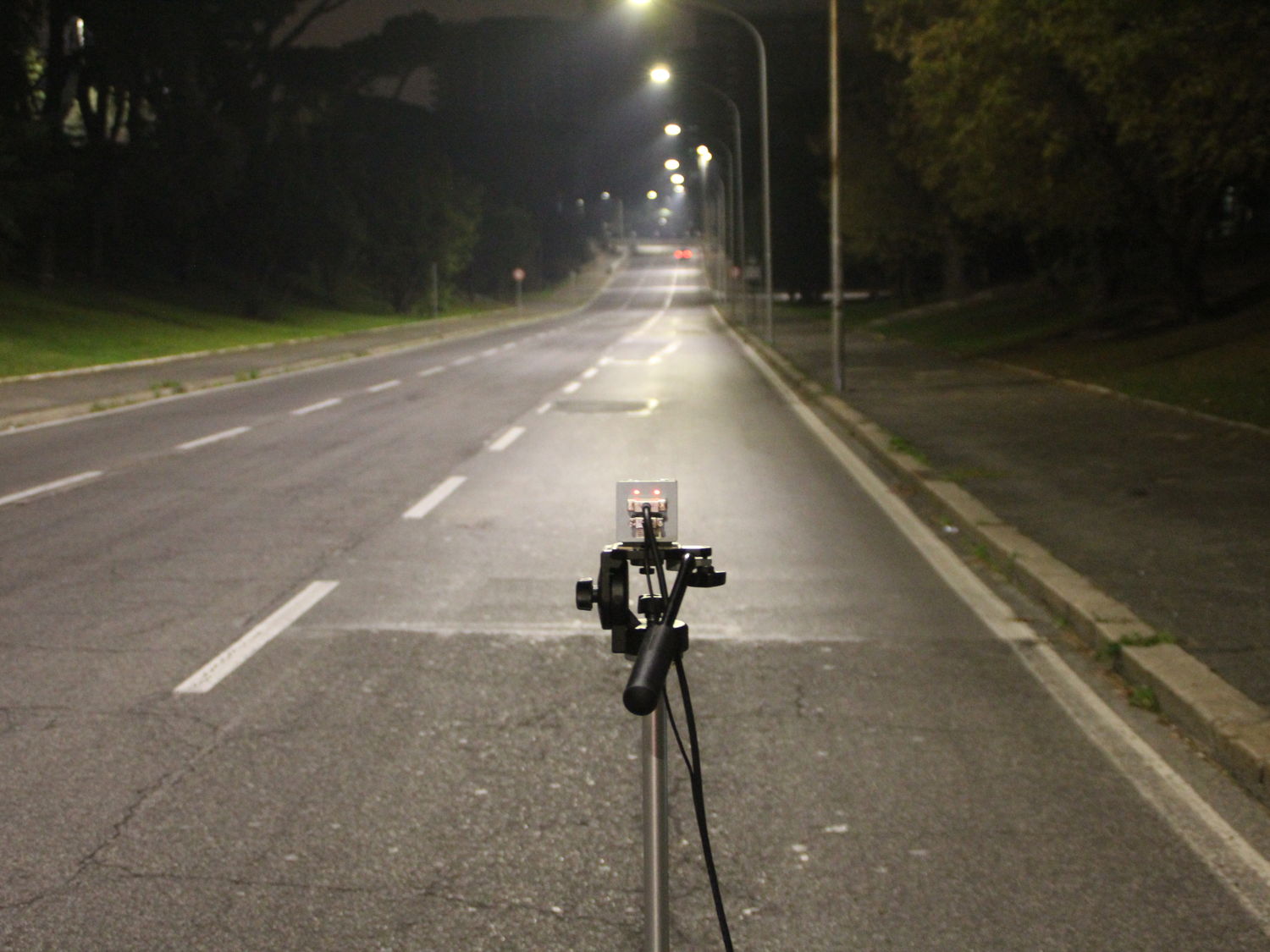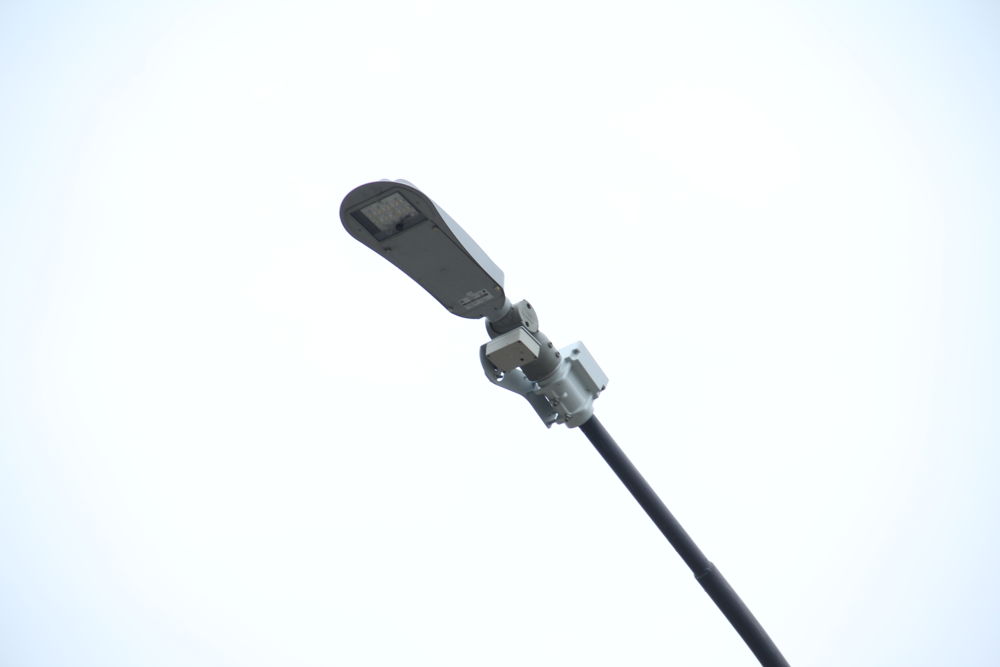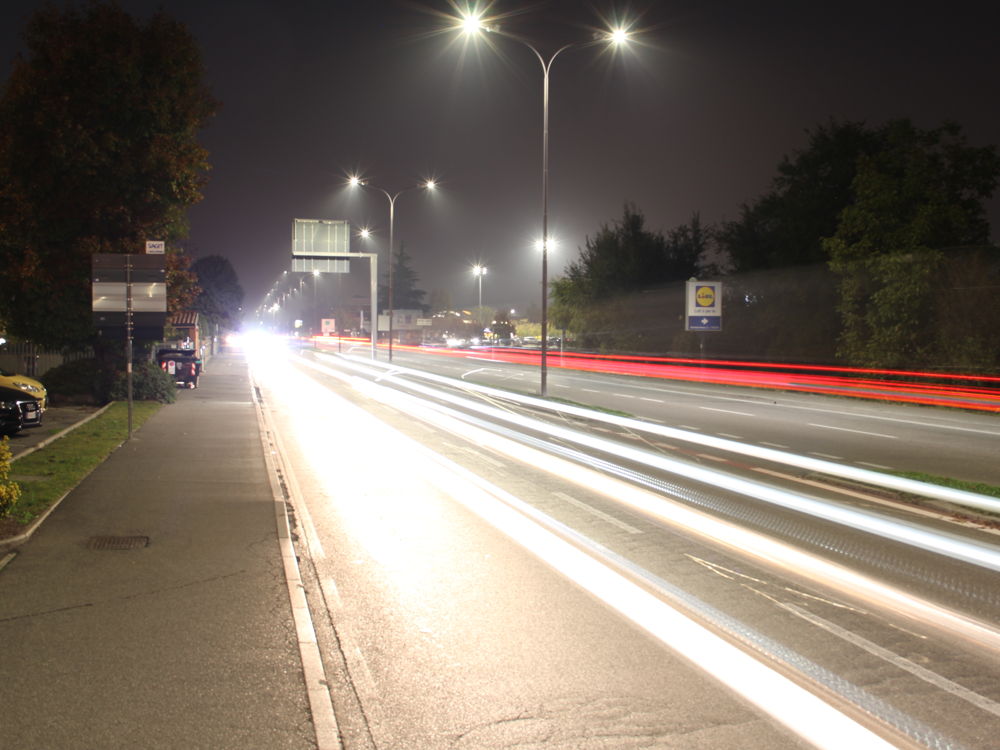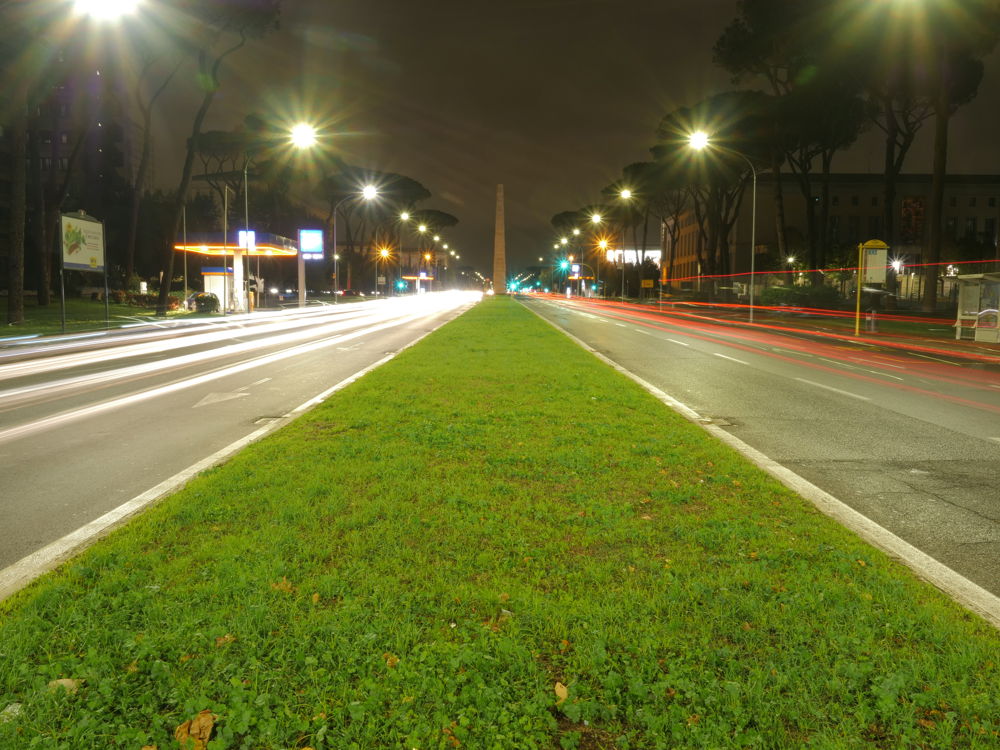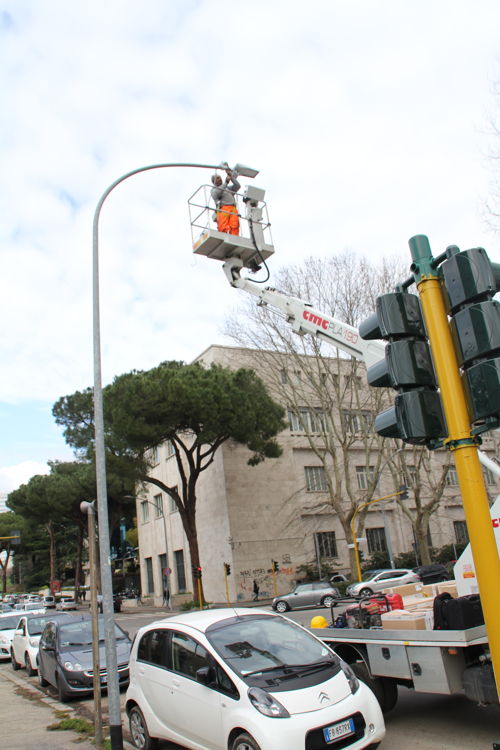Italian cities lead the way in reducing emissions and improving pedestrian safety with innovative public lighting scheme
LIFE-DIADEME, a cost-effective and energy-saving municipal lighting programme announced as a finalist in the upcoming EU Sustainable Energy Awards.
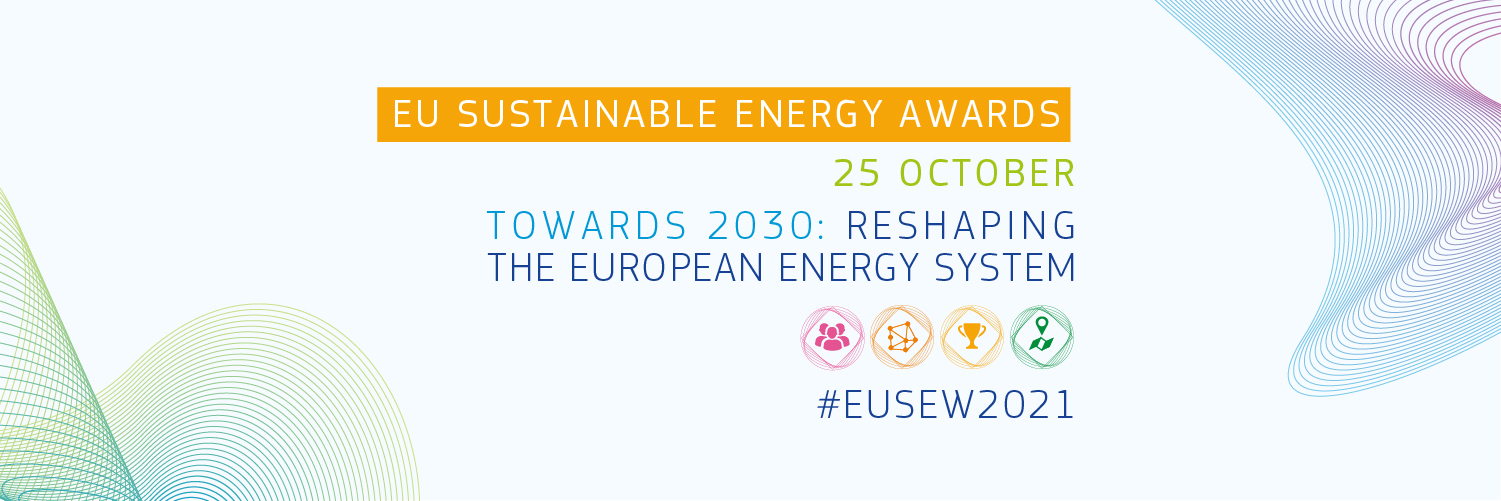
Roaming the streets of Rome at night, residents can feel confident that their way will be well lit according to the outdoor conditions and without consuming too much energy. The lighting system, in parts of the city, uses close to 50% less energy than regular street lamps thanks to the LIFE-DIADEME project.
“We have installed almost 800 sensors on light posts in the two pilot areas in Rome, and an additional 200 in Rimini and Piacenza,” says Linda Meleo, Councillor for Infrastructure Development in Rome’s Department of Infrastructure. “It is an energy-saving technology but it also promotes pedestrian safety. Many municipalities are reluctant to implement adaptive lighting technologies for fear of lighting dimming when the conditions are unsafe, but the real-time aspect of LIFE-DIADEME overcomes this.”
“The primary function of the sensors is to allow flux in lighting levels across cities of any size,” explains LIFE-DIADEME Project Manager Andrea Mancinelli. “The technology is able to monitor and adapt to real-time traffic and weather conditions, while also monitoring air quality, including levels of nitrogen (NO), nitrogen dioxide (NO2), ozone (O3) and carbon monoxide (CO), all used to regulate public lighting.”
Public lighting accounts for over 50% of electricity consumption of most European municipalities, so the ability to make savings in this area is a vital step towards climate goals. With adaptive lighting, CO2 emissions savings of 55% can be measured when compared to full-light LED installations.
In the long-term, it is estimated that a medium-sized city of 100,000 inhabitants and 12,500 lighting points could save up to 6,644 tonnes of CO2 emissions over 10 years. This figure rises to 40,000 tonnes for a larger city such as Rome, with 2.9 million inhabitants and over 200,000 lighting points. In both cases, it is estimated that a return on investment can be expected in 2.5 years.
The LIFE-funded project started in 2016 in Rome, Rimini and Piacenza and is a model of smart city technology. Two key advantages of this approach to the reduction of CO2 emissions in the public sector are that it is both highly accurate and low-cost. Initiatives such as this one are bringing the EU closer to the 2030 targets.
Innovators working for a clean, secure and energy efficient Europe
LIFE-DIADEME is one of three finalists shortlisted for the EU Sustainable Energy Awards 2021 in the Innovation category. The award recognises outstanding EU-funded activities that show an original and innovative path towards the clean energy transition. The two other contenders in the category are RenOnBill and PERFORM.
RenOnBill is a project that uses on-bill financing schemes to increase uptake of residential building renovations. PERFORM is a pan-EU project that aims to reduce the environmental impact and CO2 emissions of the chemical industry
EU Sustainable Energy Awards recognise champions of 2030 climate and energy targets
Twelve outstanding individuals and projects are highlighted at the EU Sustainable Energy Week (EUSEW) 2021 for their innovation in energy efficiency and renewables. Finalists were chosen from a list of the year’s most successful projects for clean, secure and efficient energy. The awards have four categories - Engagement, Innovation, Woman in Energy and Young Energy Trailblazer – as well as the Citizen’s Award, which will be received by one of the projects in the first two categories. Prizes will be awarded by an expert jury (for Engagement and Innovation), and by citizens via a public vote, which is now open until 22 October. The five winners will be announced on Monday 25 October during EUSEW 2021.
EUSEW 2021
EUSEW 2021 runs from 25 to 29 October 2021, under the theme ‘Towards 2030: Reshaping the European Energy System’. Taking place ahead of the decisive COP 26, the event brings together energy policy experts, industry leaders, academia and civil society representatives to discuss how forward-looking policies for decarbonisation, energy efficiency, climate mitigation, and many others comprising the European Green Deal, can help rebuild a better and more resilient society and economy.
EUSEW 2021 is held as an online event once again, with more opportunities than ever to connect, engage, network and reflect on the biggest issues in clean energy in Europe and beyond.
Registrations for participants and for media are now open.
For interview requests with the EUSEW 2021 Award finalists or additional media information, please contact media@eusew.eu
